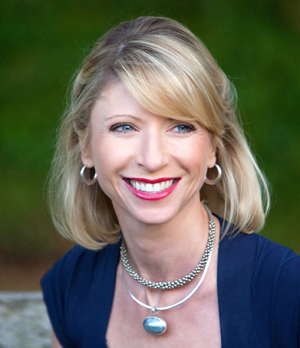Related Research Articles

In political science, power is the social production of an effect that determines the capacities, actions, beliefs, or conduct of actors. Power does not exclusively refer to the threat or use of force (coercion) by one actor against another, but may also be exerted through diffuse means.

American Express Company (Amex) is an American bank holding company and multinational financial services corporation that specializes in payment cards. It is headquartered at 200 Vesey Street, also known as American Express Tower, in the Battery Park City neighborhood of Lower Manhattan. Amex cards are primarily categorized in the order of Green, Gold, Platinum, and Black (Centurion), with a higher rank indicating a higher priority level. The Amex logo, adopted in 1958, is a gladiator or centurion and appears on traveler's checks, charge cards and credit cards.

Philip George Zimbardo is an American psychologist and a professor emeritus at Stanford University. He became known for his 1971 Stanford prison experiment, which was later severely criticized for both ethical and scientific reasons. He has authored various introductory psychology textbooks for college students, and other notable works, including The Lucifer Effect, The Time Paradox, and The Time Cure. He is also the founder and president of the Heroic Imagination Project.
The anchoring effect is a psychological phenomenon in which an individual's judgements or decisions are influenced by a reference point or "anchor" which can be completely irrelevant. Both numeric and non-numeric anchoring have been reported in research. In numeric anchoring, once the value of the anchor is set, subsequent arguments, estimates, etc. made by an individual may change from what they would have otherwise been without the anchor. For example, an individual may be more likely to purchase a car if it is placed alongside a more expensive model. Prices discussed in negotiations that are lower than the anchor may seem reasonable, perhaps even cheap to the buyer, even if said prices are still relatively higher than the actual market value of the car. Another example may be when estimating the orbit of Mars, one might start with the Earth's orbit and then adjust upward until they reach a value that seems reasonable.

An underdog is a person or group in a competition, usually in sports and creative works, who is largely expected to lose. The party, team, or individual expected to win is called the favorite or top dog. In the case where an underdog wins, the outcome is an upset. An "underdog bet" is a bet on the underdog or outsider for which the odds are generally higher.
Flock is a discontinued web browser that specialized in providing social networking and Web 2.0 facilities built into its user interface. Earlier versions of Flock used the Gecko HTML rendering engine by Mozilla. Version 2.6.2, released on January 27, 2011, was the last version based on Mozilla Firefox. Starting with version 3, Flock was based on Chromium and so used the WebKit rendering engine. Flock was available as a free download, and supported Microsoft Windows, Mac OS X and, at one time, Linux as well.
Brand extension or brand stretching is a marketing strategy in which a firm marketing a product with a well-developed image uses the same brand name in a different product category. The new product is called a spin-off.

Jay Steven Adelson is an American Internet entrepreneur. In 2014 Adelson co-founded Center Electric with Andy Smith. In 2013 he founded Opsmatic, a technology company that improves productivity on operations teams. In 2015 Opsmatic was bought by New Relic. Adelson's Internet career includes Netcom, DEC's Palo Alto Internet Exchange, co-founder of Equinix, Revision3 and Digg, and CEO of SimpleGeo, Inc. In 2008, Adelson was named a member of Time Magazine's Top 100 Most Influential People in the World and was listed as a finalist on the same list in 2009.

Digg, stylized in lowercase as digg, is an American news aggregator with a curated front page, aiming to select stories specifically for the Internet audience such as science, trending political issues, and viral Internet issues. It was launched in its current form on July 31, 2012, with support for sharing content to other social platforms such as Twitter and Facebook.

David Allen Aaker is an American organizational theorist, consultant and Professor Emeritus at the University of California, Berkeley's Haas School of Business, a specialist in marketing with a focus on brand strategy. He serves as Vice Chairman of the San Francisco-based growth consulting company Prophet.

In social psychology, a stereotype is a generalized belief about a particular category of people. It is an expectation that people might have about every person of a particular group. The type of expectation can vary; it can be, for example, an expectation about the group's personality, preferences, appearance or ability. Stereotypes are often overgeneralized, inaccurate, and resistant to new information. A stereotype does not necessarily need to be a negative assumption. They may be positive, neutral, or negative.

Toms is a for-profit company based in Los Angeles, California. Founded in 2006 by Blake Mycoskie, an entrepreneur from Arlington, Texas, the company designs and markets shoes as well as eyewear, coffee, apparel and handbags.
Digital branding is a brand management technique that uses a combination of internet branding and digital marketing to develop a brand over a range of digital venues, including internet-based relationships, device-based applications or media content.

The NASA Evolutionary Xenon Thruster (NEXT) project at Glenn Research Center is a gridded electrostatic ion thruster about three times as powerful as the NSTAR used on Dawn and Deep Space 1 spacecraft. It was used in DART, launched in 2021.

Amy Joy Casselberry Cuddy is an American social psychologist, author and speaker. She is a proponent of "power posing", a self-improvement technique whose scientific validity has been questioned. She has served as a faculty member at Rutgers University, Kellogg School of Management and Harvard Business School. Cuddy's most cited academic work involves using the stereotype content model that she helped develop to better understand the way people think about stereotyped people and groups. Though Cuddy left her tenure-track position at Harvard Business School in the spring of 2017, she continues to contribute to its executive education programs.

Jennifer Aaker is an American behavioural scientist and General Atlantic Professor and Coulter Family Fellow at the Stanford Graduate School of Business. She is known for her research on time, money, and happiness. Aaker also focuses on the transmission of ideas through social networks, the power of story in decision making, and how to build global brands across cultures. She is the recipient of the Distinguished Scientific Achievement Award from the Society for Consumer Psychology and the Stanford Distinguished Teaching Award.

Andy Stefanovich is an American speaker, bestselling author, and business consultant. A native of Detroit, Michigan, Stefanovich is currently the founding partner of a consulting firm called Life. Previously, he was a partner with Richmond, Virginia-based venture capital firm New Richmond Ventures LLC. Before that, Stefanovich was "chief curator and provocateur" at Prophet, a global business and creative consulting firm headquartered in San Francisco.
Virtual collective consciousness (VCC) is a term rebooted and promoted by two behavioral scientists, Yousri Marzouki and Olivier Oullier in their 2012 Huffington Post article titled: “Revolutionizing Revolutions: Virtual Collective Consciousness and the Arab Spring”, after its first appearance in 1999-2000. VCC is now defined as an internal knowledge catalyzed by social media platforms and shared by a plurality of individuals driven by the spontaneity, the homogeneity, and the synchronicity of their online actions. VCC occurs when a large group of persons, brought together by a social media platform think and act with one mind and share collective emotions. Thus, they are able to coordinate their efforts efficiently, and could rapidly spread their word to a worldwide audience. When interviewed about the concept of VCC that appeared in the book - Hyperconnectivity and the Future of Internet Communication - he edited, Professor of Pervasive Computing, Adrian David Cheok mentioned the following: "The idea of a global (collective) virtual consciousness is a bottom-up process and a rather emergent property resulting from a momentum of complex interactions taking place in social networks. This kind of collective behaviour results from a collision between a physical world and a virtual world and can have a real impact in our life by driving collective action."

Power posing is a controversial self-improvement technique or "life hack" in which people stand in a posture that they mentally associate with being powerful, in the hope of feeling more confident and behaving more assertively. Though the underlying science is disputed, its promoters continue to argue that people can foster positive life changes simply by assuming a "powerful" or "expansive" posture for a few minutes before an interaction in which confidence is needed. One popular image of the technique in practice is that of candidates "lock[ing] themselves in bathroom stalls before job interviews to make victory V's with their arms."
Cassie Mogilner Holmes is a professor of marketing and behavioral decision making at UCLA Anderson School of Management and author of Happier Hour. Best known for her research on time and happiness..
References
- ↑ Center Batelle, John (February 6, 2015). "REMEMBER THE INTERNET WHEN CONSIDERING THE THINGS". batellemedia.com. BatelleMedia. Retrieved February 26, 2015.
- ↑ Gladwell, Malcolm. "Why The Revolution Will Not Be Tweeted". October 4, 2010. The New Yorker. Retrieved June 12, 2013.
- ↑ David, Avril. "Names You Need To Know: The Dragonfly Effect". May 17, 2011. Forbes. Retrieved June 10, 2013.
- ↑ "About Us". pointoption.com. Point Option. Retrieved March 13, 2015.
- ↑ "Author Page at Amazon". Amazon. Retrieved June 12, 2013.
- ↑ "Vonavona Ventures, About Us". Vonavona Ventures. Archived from the original on June 4, 2013. Retrieved June 12, 2013.
- ↑ "Nautilus Award Winners". 2011. Nautilus Awards. Archived from the original on June 30, 2013. Retrieved June 12, 2013.
- ↑ "Columnist Profile at Huffington Post". Huffington Post. Retrieved June 12, 2013.
- ↑ "Contributor Profile". Psychology Today. Retrieved June 12, 2013.
- ↑ "7 Deadly Sins of Business". Amex Open Forum. Retrieved June 12, 2013.
- ↑ "Dragonfly Effect Author Andy Smith". September 23, 2010. NBC/Press: Here. Retrieved June 12, 2013.
- ↑ "Dragonfly Effect: Andy Smith". March 31, 2011. Web 2.0 Expo. Retrieved June 12, 2013.
- ↑ "SXSWi Schedule: Andy Smith". March 11, 2013. SXSWi. Retrieved June 12, 2013.
- ↑ "Speed Bumps on the Road to Success". GE. Retrieved June 12, 2013.